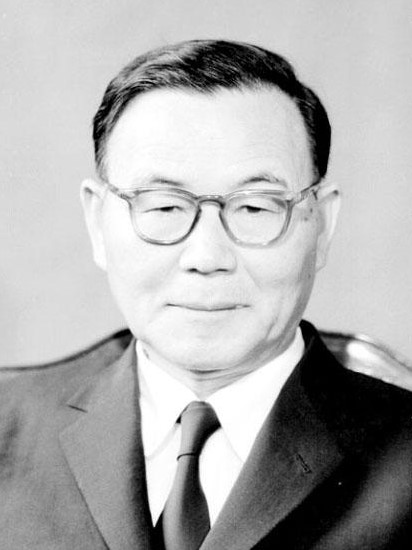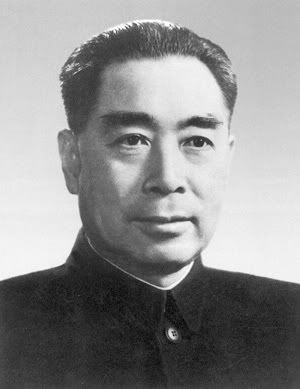Ideally, I'd like to be Kim Yong-ju, Kim Il-Sung's younger brother.
Alternatively:
Comrade Kim Chaesŏk (a.k.a. Francis Kim, or Shinzo Tanaka according to the Japanese court system)
Born June 4 1901 (67 years old)
Minister of Post and Telecommunications; Director of the Communications and Correspondence Department of the WPK
Position History:
Party:
Member, Workers’ Party of Korea and predecessors: 1925-present [Communist Party of Korea 1925-1930; independent post-disbandment CPK cell 1930-1945; CPK (North) 1945-1946; WPNK 1946-1949; WPK 1949-present]
Member of the Central Committee of the WPK: 1949-present
Member of the Politburo: 1950-present
Director, Communications and Correspondence Department of the WPK: 1967-present
State:
Procurator-General of the Democratic People’s Republic: 1948-1950
Minister of Higher Education: 1950-1953
Minister of Post and Telecommunications: 1953-present
Supreme People’s Assembly deputy for Taesong, 1948-present
Academia:
President, Kim Il-sung University: 1950-1953
Born in Pyongyang during the last years of the Korean Empire, Chaesok was born to a middle-class family of recent Catholic converts. When the Japanese came, his family, though resenting Japanese rule in private, nevertheless managed to keep their standing, in part due to the fact that they were relatively educated urban-dwellers. Chaesok received his elementary education from Catholic missionaries (where he was given the western name Francis by an American priest), but like most urban Koreans of his era, attended the Japanese-run public high school.
Matriculating to Keijo Imperial University, Chaesok was a law student during the Sam-il Movement, and as a minor participant in the demonstrations got his first experience in politics. In 1923 he took the Japanese bar examinations, and became a licensed attorney. Specializing in defending Korean national activists, in 1924 under the influence of one of his clients he repudiated his Catholic faith, and in 1925 became one of the founding members of the Communist Party of Korea (naturally, clandestinely). Described in Tokko files as “always just this side of subversion,” Chaesok branched into outright sabotage following the 1930 disaffiliation of the CPK with the Comintern. As leader of one of the few cells in Heijo, Chaesok, irritant lawyer by day, had his cell stockpile arms, paint anti-colonial graffiti in secret, and other subversive activities. This, however, came to an end in 1939 when police raided the cell’s stockpile and found evidence of a plot to smuggle the weapons to Tokyo and assassinate the Emperor in a bomb attack. Initially sentenced to death, in 1940 his sentence was (some suspect due to a well-placed bribe by a family member) commuted to life imprisonment as part of the 2,600th anniversary celebrations of the Japanese imperial house. Shuttled between prisons, each worse in condition than the previous, he was eventually released by the Red Army following the Japanese surrender. Returning to Pyongyang, he became a member of the Soviet-backed Northern Bureau of the CPK, the nucleus of the present-day WPK. At this time, he developed a personal friendship with Kim Il-sung, which was to serve him well throughout his career.
Upon the independence of the DPRK Chaesok was named Procurator-General largely at the insistence of Kim Il-sung. However, in 1950, at Chaesok’s request, he was named Minister of Higher Education and President of Kim Il-sung University, in which capacity he was responsible for the successful evacuation of the student, faculty and much of the equipment of the university before it could fall into United Nations hands. In early 1953, Chaesok, who ostensibly was part of the WPK’s Domestic Faction, set into motion Kim Il-sung’s purge of that faction when he informed on many of his colleagues and accused them of plotting a coup. As a reward, he was named Minister of Post and Telecommunications.
During the August Faction Incident, Chaesok was instrumental in intercepting correspondence among the Yanan and Soviet factions regarding Khrushchev’s Secret Speech, and let his old friend the Premier know about plots on his position. This almost fanatical loyalty to Kim Il-sung, it is said, is what keeps Chaesok from suffering the fate of many of his colleagues. Chaesok is a widower; his wife and two sons perished during the Korean War. Due to his education, he is fluent not only in Korean, but in Japanese and English. Due to his acts during Japanese colonial rule, he technically still has a price on his head in Japan.
Ideologically, Chaesok is an orthodox Marxist-Leninist; however, to him, his personal frienship with Kim Il-sung always takes priority and to some extent, does not see how the Premier’s views would ever contradict Marxist-Leninist ideals. He has recently, as a favor from the Supreme Leader, been appointed Director of the Communications and Correspondence Department of the WPK, which is suspected by some party bigwigs and foreign observers to be another example of an overlapping agency responsible for keeping tabs on what Party members are thinking, not that the lack of such an agency stopped him from doing largely the same thing with other threats to the Supreme Leader's position.




